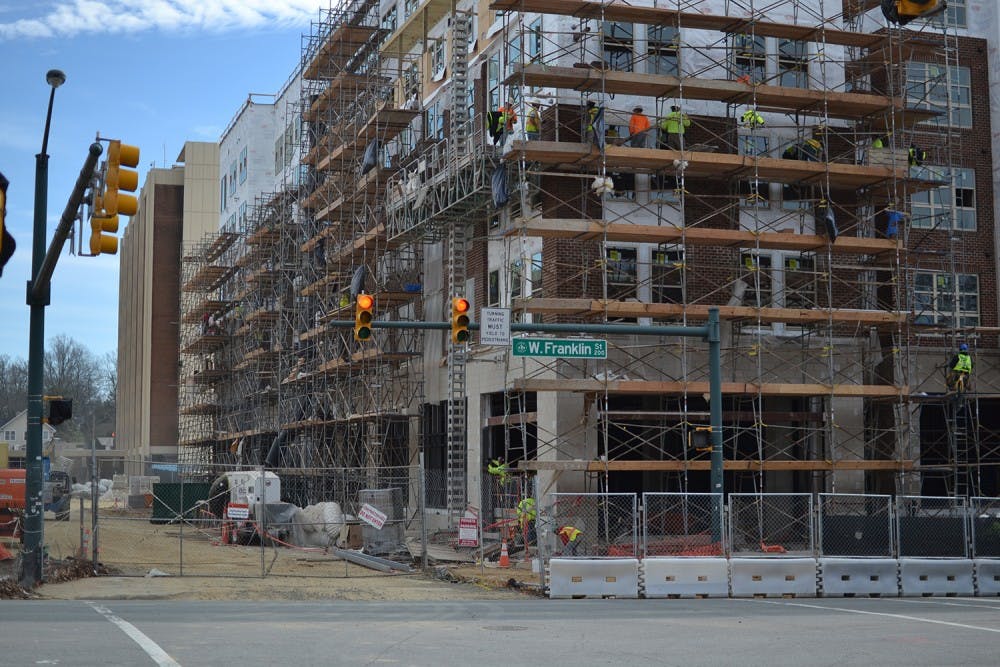While there are many restaurants and stores on Franklin Street, Chapel Hill qualifies as a food desert.
Downtown Chapel Hill is a food desert due to a lack of easily accessible healthy and affordable foods — because it doesn't have an affordable, full-service grocery store.
However, the new Target in Carolina Square could change that.
Molly De Marco, a research assistant professor in the Gillings School of Global Public Health, said the University community needs a place to shop for groceries closer to the downtown area.
“I think a lot of people assume that because of the University and that we have a lot of people here who are, of course, professors, students or grad students who are highly educated and have good jobs, that we don’t have issues with poverty,” she said. “We have a pretty high food insecurity rate among children — about 20 percent in our community.”
De Marco said the new Target could help alleviate the food insecurity, depending on what the store stocks and how high its prices are.
“Thinking about the fact that we have food desert areas in our county and people who are not able to eat adequately nutritious meals is something that should be important to us,” she said.
Food deserts push people toward buying highly processed food that isn’t necessarily healthier, but eliminates hunger, De Marco said, thus inciting obesity and other complications. However, she said there are several social challenges that also negatively impact well-being, especially when people aren't able to afford meals to enjoy with others.
Nonprofit organizations, such as TABLE, are working in Chapel Hill and Carrboro to combat food insecurity. Ashton Tippins, TABLE’s executive director, said food security was simply defined as a person having nutritious food to eat.




